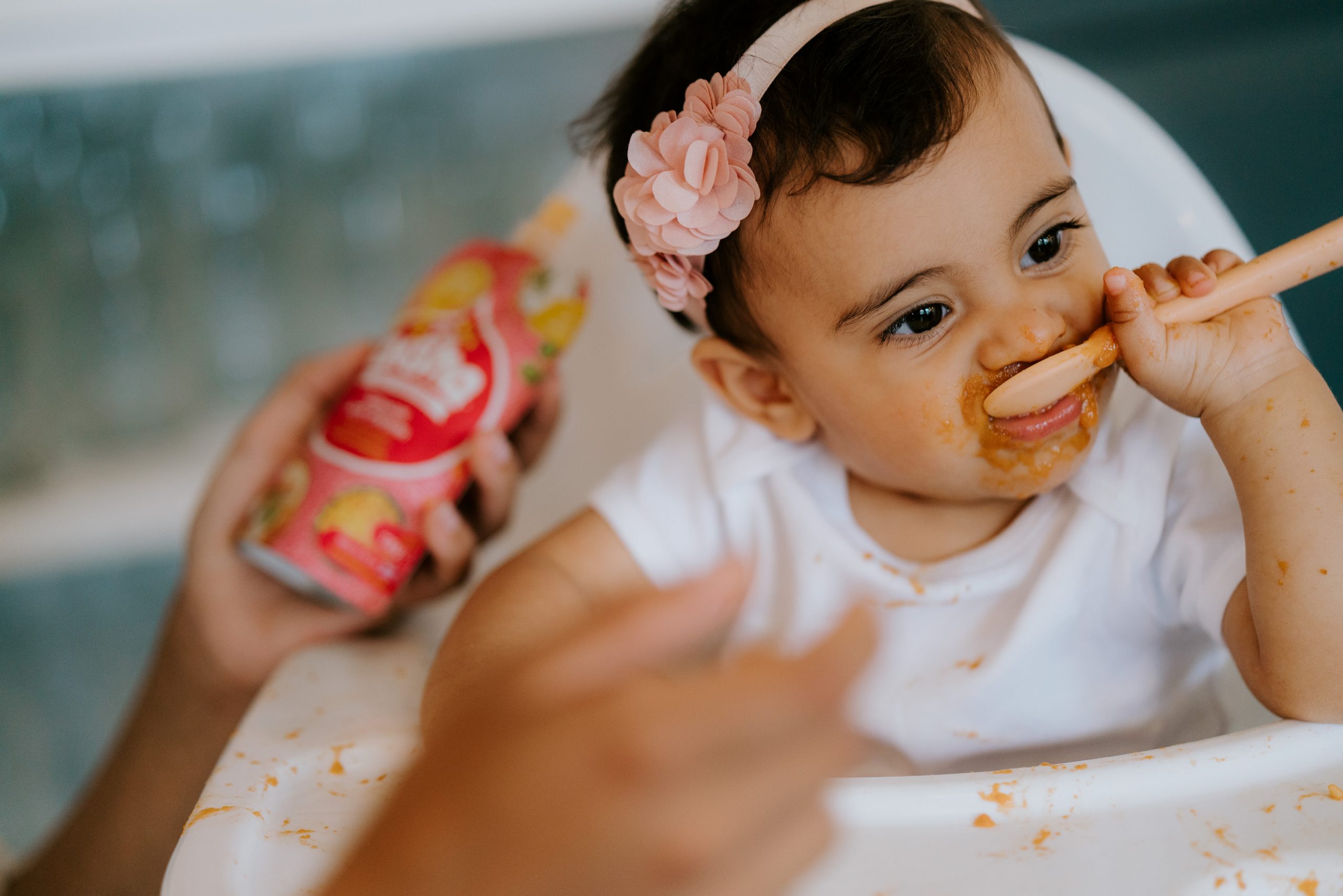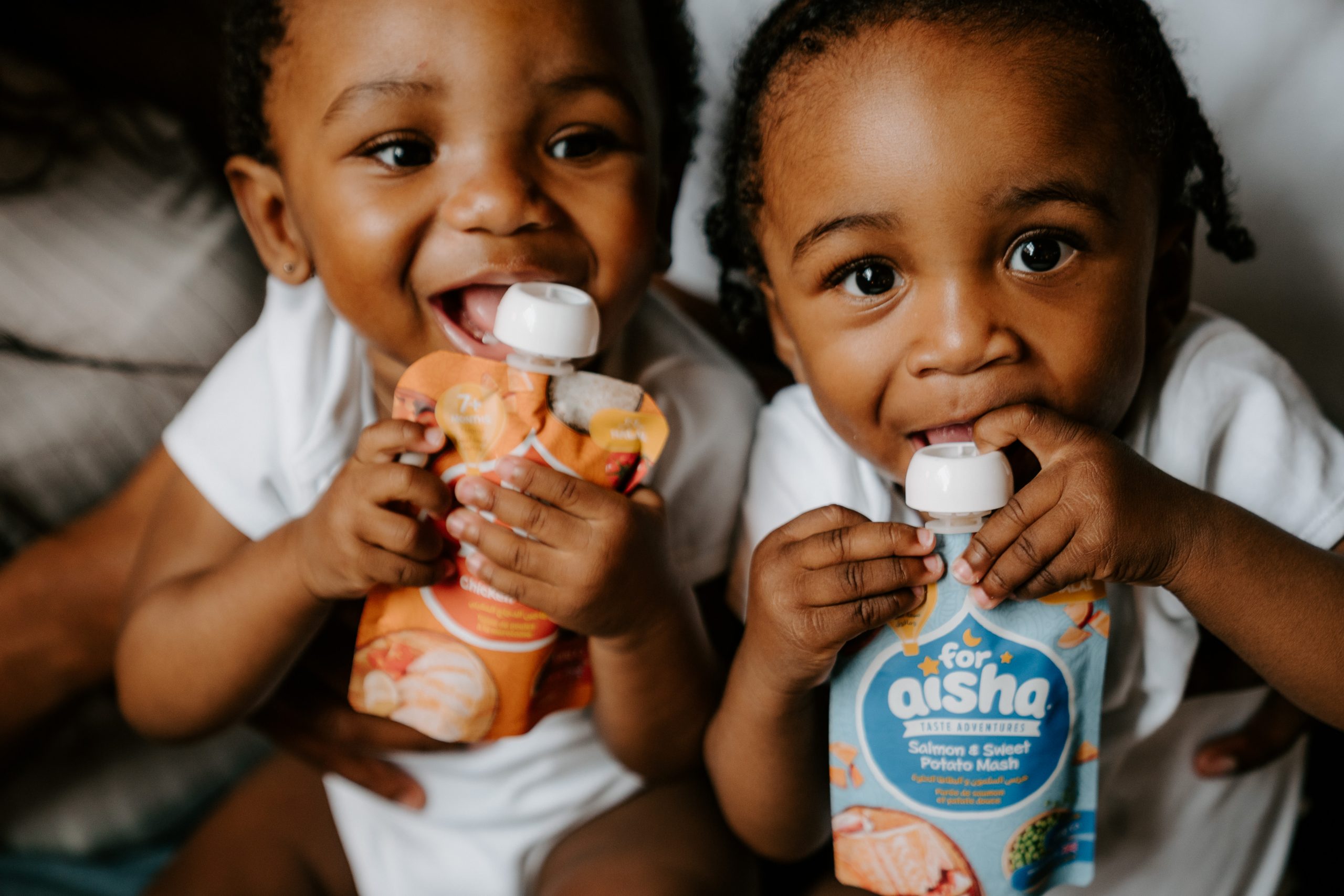
Weaning Myths
There are a number of myths when it comes to a baby’s diet and weaning
As a parent it can be very hard to know what to believe. I would like to clear up some of the most common myths I have come across in my time as a nutritionist, and hopefully put some of these unhelpful ideas to bed so parents can focus on enjoying precious experiences with their little ones.

“Babies shouldn’t play with their food.”
Weaning is the perfect time for little ones to learn about textures, to practise their pincer grip, to pick things up and see what happens when things are dropped. Whilst it can be a messy business, it’s good to let babies play with their food.
“Weaning will help my little one sleep through.”
Sadly this just isn’t true. Babies wake for many reasons that can be unrelated to food. They can be unsettled, thirsty, have a dirty nappy or just want a cuddle. Weaning your little one is not likely to help with their sleeping pattern, however as your baby moves into toddlerhood they may need an evening snack to help them settle at night. There are also sleep regression stages that happen, so if your little one is suddenly not sleeping this can be due to a developmental reason; such as learning to crawl or stand up in their cot.

“Rusks are an ideal finger food.”
Rusks were commonly given to babies years ago, so you yourself may have been weaned on them. However we now know they aren’t the ideal food as one of the main ingredients is sugar- which is not good for those developing teeth. Instead, try these options for finger foods: steamed vegetables, soft fruit, rice cakes with hummus, or cut up boiled eggs.
“Nuts are not safe.”
It used to be thought that giving babies nuts would increase the risk of developing a nut allergy. We now know this isn’t the case. There is actually evidence to show that introducing nuts from 6 months could reduce the chance of a nut allergy. If there are a lot of allergies in your family do check with your doctor first. It isn’t safe to give children under 5 yrs whole nuts as they could choke; instead use crushed, ground or nut butters.

“Food before 1 year of age is just for fun.”
Whilst your little one is still having plenty of milk feeds, the nutrition they are getting from their meals really does count. Iron stores start to run out at around 6 months, so it’s important to offer your baby iron-rich foods; including meat, fish, beans and pulses, dark green leafy veggies and eggs.
“Supplements aren’t needed.”
Everyone in the UK should take a vitamin D supplement- including babies- from birth. It is also recommended to give little ones vitamins A and C from 6 months to 5 years of age. These supplements can be taken as a liquid and help to ensure your little one is getting all the essential vitamins that they need.

“Weaning babies should be given one new food to try every 3 days.”
This only applies to potential allergens such as peanuts and sesame, which need to be introduced slowly and gradually into your baby’s diet so it’s easier to pinpoint if a food is causing a reaction.
“Babies cannot chew without teeth.”
Whilst this sounds logical, in actual fact babies have hard gums and are able to mash and break food up using them. If you have ever put your finger in your little one’s mouth and had them munch down you will know how strong their bite can be! So you do not need to wait for them to have enough teeth to be offering finger foods.

“Sweet foods should be kept until the end of a meal.”
Babies can definitely have a preference for sweeter foods, so it is important to offer a range of flavours and tastes to help them broaden their palates. However, sweeter foods can be served up with the main meal, giving your little one the choice of when and how they want to eat. Having to eat your savoury food to get to the sweeter dessert can make dessert seem like it is the prize. Instead all foods should be seen as equal. So offering fruit and yoghurt with dinner may look odd to start with but it helps your little one make their own choices.
“Baby rice is a good weaning food to start with.”
Although baby rice can be useful to thicken a veg puree if it’s too runny -and some rice brands also contain added iron which is great- vegetables are the best first food option. When it comes to vegetables, make sure that they’re ‘squishable’ before giving them to your little one- you can test this by squeezing it between your thumb and finger. In my home, we began with green vegetables before moving onto sweeter vegetables such as carrots.

“If babies go a little red around the mouth after eating a food, they shouldn’t be given this again.”
Not necessarily, as this could be a contact reaction (babies have sensitive skin and can react to acidic foods such as tomatoes). As long as they aren’t showing any other signs of an allergic reaction you could try applying a barrier around their mouth next time e.g. vaseline, to see if this helps. However do keep an eye on this and consult your GP if you’re at all concerned.
As you can see, there are a variety of food myths and some of them are not very helpful. It’s important to remember that every child is different, and routines will differ from home to home. The most important thing to remember is to trust your gut, and if you have any questions at all about your little one’s weaning habits consult your health visitor or GP.
-Written by For Aisha nutritionist Priya Tew





